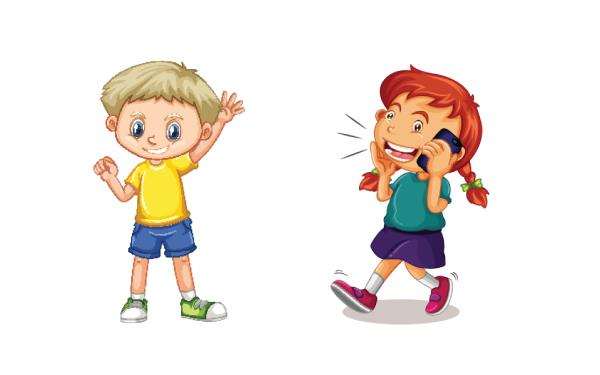
This is a guide to help learners to communicate easily in both speech and writing through a better understanding of the English language.
Comic / comical
‘Comic’ means ‘amusing you and making you want to laugh’
There are comic novels and comic writers.
‘Comic relief’ is a situation in a serious story that makes you relax a little because it is funny.
Behaviour or situations that are comical are funny in a strange or unexpected way.
The note of pure panic in her voice was almost comical.
Comma
A comma is inserted between two main clauses linked by a coordinating conjunction such as ‘and’ and ‘but’.
It has been exceptionally cold today, but rain is forecast for tomorrow.
A comma is used to separate three or more clauses, words and phrases.
Anne picked up her books, walked to the car, and drove off to school.
A comma is used following a phrase, clause or word introducing the main clause.
When the time comes, you have to go.
A comma is used to set off a phrase or clause in the middle of a sentence.
My sister, who lives in London, is a keen photographer.
Commitment / committal
A commitment is a promise to do something or to behave in a particular way.
Some people are not ready to make a long-term commitment.
‘Committal’ is the process in which a court sends someone to a mental hospital or prison.
Bob’s committal to prison was upheld by the Supreme Court.
Common / mutual
‘Common’ means ‘happening often and to many people or in many places’
Heart disease is one of the commonest causes of death.
‘Common knowledge’ is something everyone knows.
It is common knowledge that reading broadens the mind.
If something is common, there are a lot of them.
‘Perera’ is a very common name in Sri Lanka.
Mutual feelings such as respect, trust, or hatred are feelings that two or more people have for each other.
Mutual respect is necessary for any partnership to work.
Comparative / comparatively
‘Comparative’ should be used only when there are two or more things to compare.
Daniel’s last few years were spent in comparative comfort.
‘Comparatively means ‘as compared to something else or to a previous state.’
Crime on the small island is comparatively rare.
Compare to / compare with
‘Compare’ means ‘to consider two or more things or people, in order to show how they are similar or different.’
The police compared the suspect’s finger prints with those found at the crime scene.
His style of writing has been compared to Dickens’.
Compel / impel
Both words mean ‘to force or drive, especially to a course of action. However, there is more strength in ‘compel’ which suggests coersive pressure from outside.
She was compelled to hand over her mobile phone to a man who threatened to kill her.
‘Impel’ is used more often in a figurative sense, implying the internal pressure of feelings and strong motivation.
The lack of democracy and equality impelled the opposition to fight for independence.
Complacent / complaisant
‘Complacent’ means ‘pleased with a situation, especially something you have achieved, so that you stop trying to improve or change things.’
There is a danger of becoming complacent after passing an examination and getting a job.
‘Complaisant’ means ‘obliging or compliant, agreeable.’
Complement / compliment
‘Complement’ is that which completes or makes something perfect.
A ship’s complement means its officers and crew required to man the vessel.
A compliment is an expression of praise or admiration.
All the guests paid her extravagant compliments.
